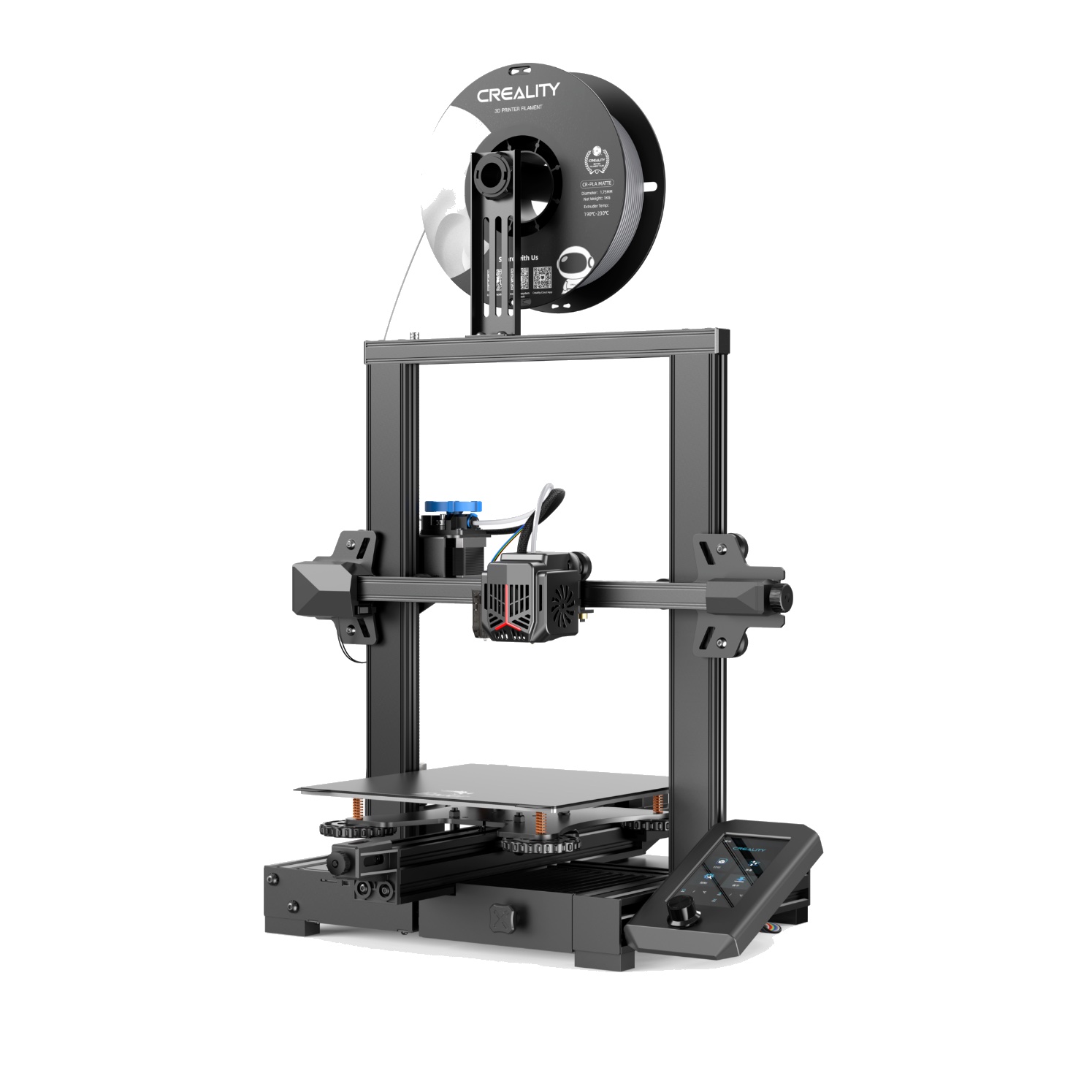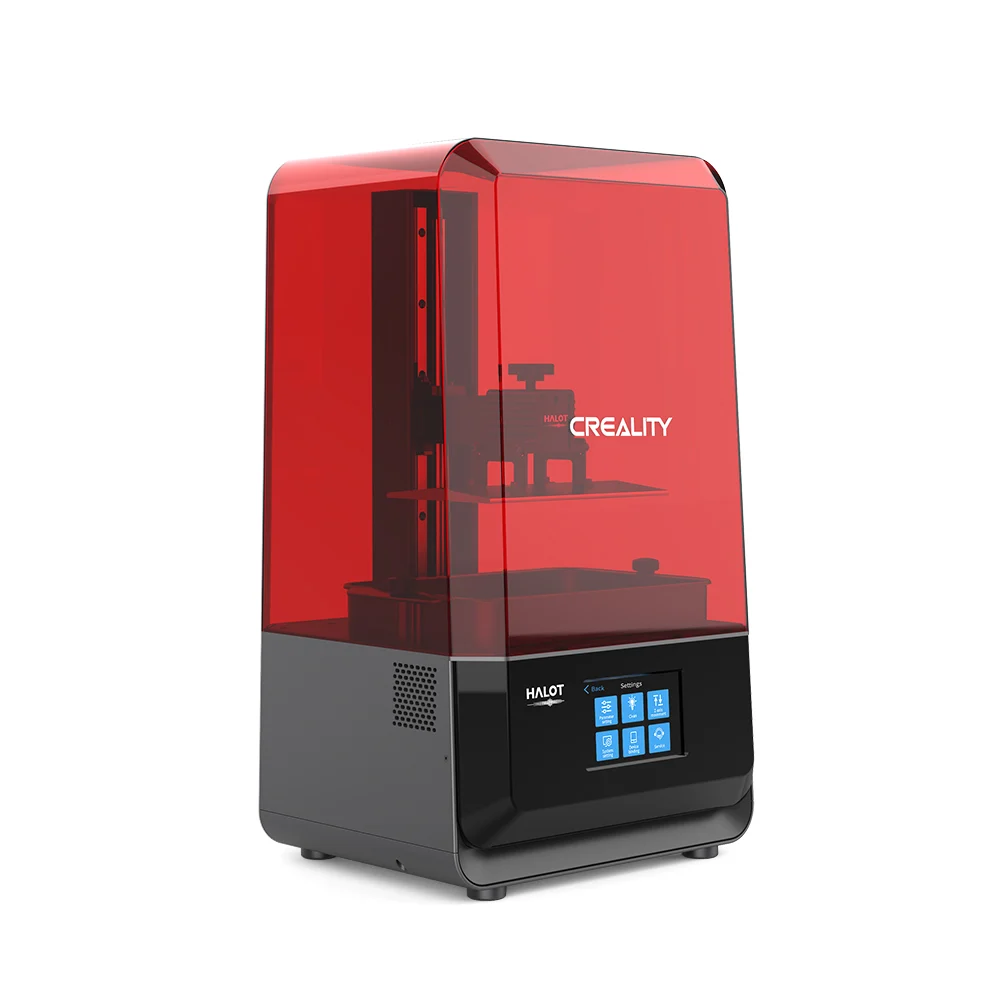Compare Ender 3 V2 Neo vs Halot Lite
Comparison between the best 3D printers
Choose the best 3D printer at the best price. The cheapest 3D printers are here.
Buy a 3D printer here with 3D Fila.
 |
 |
|
| Model | Ender 3 V2 Neo[BUY Ender 3 V2 Neo] |
Halot Lite |
| Printing Material | Filament | Resin |
| Buy Filament for Creality 3D Ender 3 V2 Neo | Buy Resin forCreality 3D Halot Lite | |
| Estimated price | $310,00 | $400,00 |
| Manufacturer | Creality 3D | Creality 3D |
| Release Year | 2022 | 2021 |
| Print Volume [mm] | 220x220x250 | 192x120x200 |
| Printer Size [mm] | 438x424x472 | 330x301x572 |
| Weight [kg] | 9,8 | 10,6 |
| Power Loss Recovery | YES | NO |
| Maximum Resolution [mm] | 0,1 | 0,01 |
| Processor | 4.2.2 mainboard | |
| Display | Display touchscreen 4,3'' | Display touchscreen 5'' |
| Power Supply | ||
| Connectivity | SD / USB | SD / USB |
| Operating systems | Windows, Mac, Linux | Windows, Mac, Linux |
| Date of registration in the system | 2022-12-09 | 2022-11-04 |
| Release date | 2022 | 2021 |
| Extra features | The Ender 3 V2 Neo printer stands out for its automatic bed leveling with the CR Touch system, ensuring high-quality initial layers. It features an all-metal Bowden extruder for increased durability and improved filament handling. Its flexible, PC-coated magnetic build plate makes it easy to remove prints and is durable and easy to clean. It also includes a new user interface with model preview and an updated gantry design. The Ender 3 V2 Neo maintains the same build volume and temperatures as the previous version, supporting popular filaments such as PLA and ABS. It features a quiet 32-bit mainboard and additional features such as a filament sensor, print recovery, simple 3-step assembly, an integrated toolbox, and belt tensioners. | Crealitys Halot Lite printer stands out in the mid-size resin 3D printing segment, with a build volume of 192 x 120 x 200 mm and 50 micron resolution. It offers a monochrome LCD for fast and durable printing, and an upgraded light source that ensures over 80% uniformity across the print bed. It includes Wi-Fi connectivity for remote control and updates, an ARM Cortex CPU for efficient performance, and is compatible with Halot Box and Lychee slicing software. It also has an activated carbon filter to reduce odors. |
| Support for multiple colors and materials (AMS and CFS) | NO | NO |
Notes * |
||
| Cost-benefit | 6 / 10 | 8 / 10 |
| Hardware | 2.4 / 10 | 1 / 10 |
| Tela | . | . |
| Print volume | 3 / 10 | 3 / 10 |
| Performance | 0 / 10 | 9 / 10 |
| [BUY Ender 3 V2 Neo] |
Conclusion |
| In conclusion, the comparison between the Ender 3 V2 Neo and the Halot Lite reveals distinct strengths that cater to different user needs and printing preferences. The Ender 3 V2 Neo emerges as a compelling choice for those seeking a cost-effective option with versatile capabilities. It offers robust features such as automatic bed leveling, a flexible build plate, and various filament compatibility, making it well-suited for beginners and those who prioritize ease of use. Its larger print volume further enhances its appeal, allowing for the creation of larger models while maintaining efficient handling. On the other hand, the Halot Lite positions itself as an excellent option for users interested in high-resolution resin printing. With its impressive resolution capabilities, strong light source uniformity, and Wi-Fi connectivity, it provides a powerful tool for detailed and intricate designs. However, it comes at a higher price point and has a smaller build volume, which may limit the size of projects. Ultimately, the choice between these two printers boils down to the user's specific priorities—whether one values affordability and ease of use in FDM printing or seeks advanced performance and detail in resin printing. Both offerings from Creality 3D showcase the brand's commitment to quality and innovation in the 3D printing space. |

